Will.i.am launches Puls -- the smartwatch that's not a watch
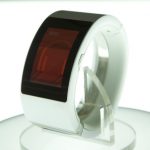
It's not a watch. It's not a watch. It's not a watch. Despite appearances to contrary (it tells the time and is worn on the wrist for starters...), Black Eyed Peas' singer and tech fiend will.i.am is keen to assure us that his new wristband is most definitely not a watch. Unveiling the wearable, the smart cuff, the wristband -- call it what you will, as long as it's not a watch -- at Dreamforce in San Francisco, he showed off the fact that the Puls (pronounced Pulse, not Pulls) can be used to make calls without the need to be paired with a mobile phone.
It's a device that has been teased for quite some time now. Will.i.am has been seen on many occasions with the band on his wrist, but had resisted giving away too many details. Now we know it is a curved screen device complete with its own SIM card, 16GB of memory and 1GB of RAM, and a Siri/Cortana-bating voice recognition system called Aneeda (I need a...).
Phablet showdown: Google Nexus 6 vs Samsung Galaxy Note 4

Google has just launched a shiny new addition to its signature Nexus range, the Nexus 6. At a whopping 5.96-inch, this is a beast of a phone that is bang on the phablet trend sweeping the global smartphone market. But how does it square up to the other large-screened powerhouses scrapping for your attention?
We pit its specs against those of the Samsung Galaxy Note 4 to see who (on paper) comes out on top.
Phablet showdown: Google Nexus 6 vs Apple iPhone 6 Plus
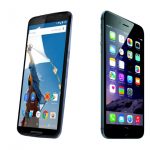
Google (with a lot of help from Motorola) has released the much-anticipated Nexus 6, updating its beloved Nexus 5 with an all-new look and beefed-up specs. But how does the Nexus 6 compare to other smartphones on the market?
More specifically, how does it fare against Apple's iPhone 6 Plus? Let's break down the specs and take a look.
Parlez-vous l'internet? Google Translate gains new Chrome extension

The web is truly worldwide, the epitome of globalization and the ever-shrinking world. As much as the McDonaldization of the world means that cultures are on an homogenizing course, there are still plenty of differences to embrace -- language is one of them. Spend just a little time surfing the web and there's a reasonable chance that you'll encounter a foreign language site, or at least a few words and phrases that are beyond your high school French and Latin.
Enter stage right Google Translate. This service of course n'est pas nouveau. In fact Google Translate has been around for ages. Mais maintenant il y a un Chrome extension that makes the translation process easier than ever. Oubliez visiting a dedicated website, now your translation is a mere click away.
Google and Asus launch Nexus Player for video, music and game-playing
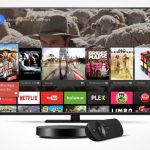
Well... Android Lollipop (née Android 5.0), the Nexus 6 and Nexus 9 were expected, but Google managed to sneak a little 'one more thing' addition to today's batch of announcements. Nexus Player, as you'd probably guess from the name (and certainly from the headline), is a streaming media device. But in addition to catering for all your video and music streaming needs, the device also doubles up as a games console.
In many ways the Nexus Player is an extension of Chromecast -- there is even casting support. Google has teamed up with Asus to bring us a device that not only streams media, but also streams games from phones and tablets. And this aims to be more than a console for casual gamers; there's even a gamepad that's very reminiscent of the Xbox One controller.
Google wants you to suck it -- reveals Android 5.0 Lollipop
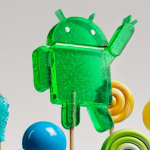
Android 5.0 has been highly anticipated; fans of Google's operating system have been speculating for months about what it would be like. Hell, people have even been wondering what the name may be. You see, Google sticks to an alphabetized convention using tasty treats -- Cupcake, Jellybean, KitKat -- you get the idea.
Android 5.0 is the letter L and after much wonder, the name is revealed -- Lollipop. I guess you could say that the new version of the operating really sucks, eh? Actually, it looks quite incredible and the new version furthers Google's lead over Apple's iOS from a features perspective.
Google takes the wraps off Nexus 6, Nexus 9 [Update]
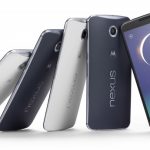
It is estimated that one in three smartphones shipped in 2018 will be a phablet, which is more than double their projected share for 2014. For Google -- with Android still likely to run on the majority of phablets -- helping developers to properly optimize their apps for larger screens has become a top priority. Ensuring that Android phablets provide a great user experience is paramount; otherwise, users may jump ship to Apple's iPhones or Microsoft's Windows Phones.
So, today, Google takes the wraps off its first phablet, Nexus 6. It is the embodiment of all the great features we have come to expect out of a phablet from late-2014: super high-resolution screen, super fast processor, solid cameras, very thin bezels and a huge battery. As expected, Google also announced a new tablet, the first one to come since July 2013, called Nexus 9. It does not disappoint either. Of course, both run the new Android 5.0 Lollipop, which is shipping in the next few weeks.
Ireland in tax clampdown targeting Microsoft, Apple, Google, and more

The Irish government is phasing out the so-called 'Double Irish' finance scheme that currently enables companies such as Google and Apple to slash millions (or even billions) of dollars from their tax bills. The scheme works by companies, regardless of where they may be operating in the world, collecting their profits through an Irish office (where tax is already low), and then funneling the money through a subsidiary company located in another tax haven by means of royalty payments.
Companies, like individuals, are understandably keen to keep their tax bills down as much as possible, and will jump through lots of hoops to reduce the amount of tax they have to pay. Offshore bank accounts, subsidiary companies and the like might sound like the makings of something illegal -- which it can be -- but it's a legitimate way to reduce costs. But the fact that something is legitimate doesn't mean that it's popular. At least it's not something that is popular with governments.
Thinking unconventionally is how you protect an entity the size of Google

We are at the 27th annual Information Security Solutions Europe Conference (ISSE), one of Europe's largest gatherings of cyber security experts.
Stephen Somogyi of Google Safe Browsing gave an amazing keynote speech about how Google goes about protecting its billions of users around the world. Here are some of the highlights:
Why Google needs a bigger Nexus phone and phablet-optimized Android L
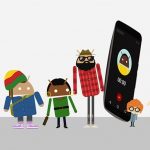
The point of the Nexus line is ambiguous now. Is it a developer line? Does it showcase what Google wants in an Android phone? Does it showcase the cutting edge of Android? Maybe in the beginning the purpose was clear, but now I don’t think even Google knows. The one thing I am certain of is that the forthcoming Nexus phone will not be just another phone.
The Nexus line so far has helped to give developers a pure experience of Android to work on. One where the OS followed and fostered an environment that placed emphasis on the guidelines set forth by Google, such as on-screen buttons and leveraging full screen mode. A developer using a Nexus would get a very different impression of Android than one using Samsung's TouchWiz on a Galaxy phone -- which would reflect in the app produced.
Security alert: Google drops SSL 3.0 after POODLE attack discovery

Google's security team has discovered a vulnerability in SSL 3.0 which can be exploited to steal secure cookies and other data. The 15 year old technology is still used as a fallback when connection problems occur as it helps maintain backward compatibility, but the security problems mean that Google will start to phase out support. Details of the exploit have been published and Chrome has today been tweaked to disable SSL 3.0 fallback.
Bodo Möller from Google's security team points out that this move will "break some sites" and that they will need to be updated. This does present some compatibility issues, and the advice is to support TLS_FALLBACK_SCSV instead, at least for the time being.
Is Microsoft trying to confuse users by having Bing look like Google?
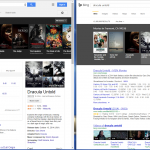
Microsoft has been tweaking Bing's design for a while now. The latest design makes it seem that it wants Bing to be indistinguishable from Google. If you have Bing as the default on your browser (or accidentally clicked a Microsoft prompt to do so), and are not very tech-savvy, you may not even realize that you're using Bing -- especially if you think any type of internet search is "Googling."
Notice how each have a minimalist search bar at the top with options for different searches at the bottom with "Web" highlighted with a colored bar.
Google lists the top 10 Halloween costumes -- who or what are you dressing up as?

October is one of my favorite months; I get to wear a hoodie, drink pumpkin spice lattes (PSLs) from Starbucks and enjoy Halloween. Sure, I am far too old to trick or treat, but that does not mean that I can't get into the holiday spirit. I go pumpkin picking, carve jack-o'-lanterns, and give out candy to kids that come to my door.
When I was a young man, I did dress up for Halloween, but we were usually too poor to actually buy costumes. I recall one year that I dressed up as a SilverHawk, a popular cartoon in the 80s. My mom put aluminum foil on my head and sent me out with a pillow case for candy. In hindsight, I probably looked insane, but in my mind, I was a SilverHawk. Today, Google announces the top 10 Halloween costumes as per search trends.
Microsoft releases a new keyboard for Android Wear watches
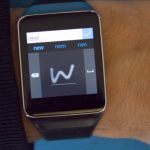
Google's Android Wear is still getting started, having a smattering of devices such as the LG G Watch and Motorola's Moto 360. The wrist wear brings the mobile platform to a small screen, and it's received a lot of attention since the launch.
Microsoft has a history of supporting Android, releasing all of its apps to the rival devices, despite Google's failure to reciprocate. Last month the the company released OneNote for watches and now the software giant is working on Android Wear again, offering a new analog keyboard app for the tiny items.
Flashback Friday: How two Stanford University whiz kids accidentally built Google

Second in a series. Google is everywhere. It's behind the world's most popular mobile operating system and map, one of the most successful email services ever, and has even expanded into the finance, wearables and transport sectors. What's more, it probably still serves as your browser home page (or just a means of finding out whether you're connected to the Internet or not).
The still-relatively-young company has come a hell of a long way since its inception in the late 90s, and looks well capable of dominating each and every avenue it decides to enter. However, the company had very humble, and indeed slightly odd, beginnings.
Recent Headlines
BetaNews, your source for breaking tech news, reviews, and in-depth reporting since 1998.
© 1998-2025 BetaNews, Inc. All Rights Reserved. About Us - Privacy Policy - Cookie Policy - Sitemap.